Will You Hear My Voice: Artist Lynne Avadenka Revisits Rahel
I first heard the lyrics of Zemer Nugeh, a poem by seminal pre-state Israeli poet Rahel, as a 14-year-old at summer camp in the early 90’s. I had no experience with heartbreak or loss, and yet the haunting words affected me. I’d spend the evenings walking through open green fields, kicking up dust at sweaty folk dancing sessions, feeling inspired by nature and Hebrew culture and pining for the summer when I’d get to spend six weeks in Israel.
Sure enough, my trip to Israel the following summer—the first one taken independent of my parents—didn’t disappoint. There were sweltering hikes in the Judean Desert and dips into chilly waterfalls in the painfully green Galilee. There were bonfires with roasted potatoes wrapped in tinfoil and songs sung high atop mountains in the Negev. And there was first love.
The poet writes, “The country is big and has many roads. We meet for a moment and separate forever.” It ends: “I will wait for you until my life will end, like Rachel waited for her lover.”
What’s most affecting about Rahel’s poetry is its stunning simplicity. If you have ever walked the length of a dried-out riverbed as the sun hangs like an egg yolk--all water and bounce against a pink sky--if you have ever traveled thousands of miles and returned home permanently changed, if you have ever loved, you will see yourself reflected in her spare lyrics.
That’s why Rahel’s poetry has endured, why Israeli school curricula mandate its study by students, why her face is on the small country’s currency, why she’s noted in the annals of history as one of our greats.
A Russian-born Israeli pioneer who emigrated to Israel at 19 and the first female Jewish poet in pre-state Israel to receive acclaim in a field that had previously been dominated by men, Rahel means many things to many people.
To Detroit-based book artist Lynne Avadenka, what’s most compelling is Rahel’s fierce independence. “At 19 years old, she picked up and left her home,” Avadenka remarks, just days before the opening of her Rahel-inspired exhibition at the Yeshiva University Museum, How a Poem Begins.
Like Rahel, Avadenka also traveled to Israel at 19 and lived on a kibbutz. “But she stayed, and I didn’t,” Avadenka notes. “Studying Rahel has offered me a really interesting look at the choices we make and how they affect our lives forever.”
Avadenka’s exhibition at YUM is a visual dialogue with the poet; through color etchings, folded screen and multi-media, she allows the viewer inside of the language and landscape that so captivated the poet. What’s more, students of Israeli landscape and culture can immerse themselves in the early 20th century of Rahel as they explore photography and other memorabilia collected for the exhibition.
“I have tried, in my work, to give voice to Jewish women,” Avadenka tells me over the phone, as she watched the installation of her art at the Museum last week. Of note, in 2010 Avadenka’s limited edition book titled Plum Colored Regret featured an exploration of the poem Will Her Love Be Remembered, written by the wife of Dunash ben Labrat, a Jewish poet of medieval Spain. We don’t know the wife’s name, but her poem propels Avadenka’s book and amplifies her voice. A narrative about the concern of a wife whose husband is about to embark on a lengthy trip, many Jewish literary scholars see the poem as the first to surface after the writings of the biblical poetess Deborah.
“The importance of the male poets of medieval Spain is well established,” Avadenka offers, noting the popularity of ibn Gabriol’s work, an 11th century Andausian poet and philosopher who published hundreds of poems. “But I was so taken by Will Her Love and the expression of her feelings of loss and abandonment. I wanted to bring the experience of that poem—and that woman—to a wider audience,” she says.
When Avadenka received a commission by The Covenant Foundation to travel to Israel and study at the Gottesman Etching Center at Kibbutz Cabri in the western Galilee in the fall of 2014, she saw the literal map of Rahel’s life in Israel as inspiration for her art.
“Cabri is composed of so many colors of green,” Avadenka reflects, “and while you can never be totally removed from politics while in Israel, you have a bit more room to breathe up there.”
By combining words and image, and considering questions of home, displacement, feminism, and childhood and by reflecting these ideas off of a stunning landscape, Avadenka’s exhibition offers us not just the aesthetic pleasure of immersion into art but also an education.
“How did Rahel understand the ideas and concepts of homeland, home and land? How did she explore and express notions of identity, independence, femininity, and individuality?” These are questions Avadenka asks of Rahel, and which serve as prompts to anyone who engages with the work.
At a time when culture wars in Israel rage and political strife continues to rattle the pages of our newspapers and the hearts of those connected to Israel, an immersion into landscape, love, and even loss is not only welcome but also an essential reminder of the shared experience of being alive in the world.

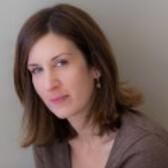
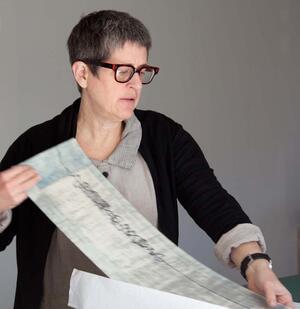
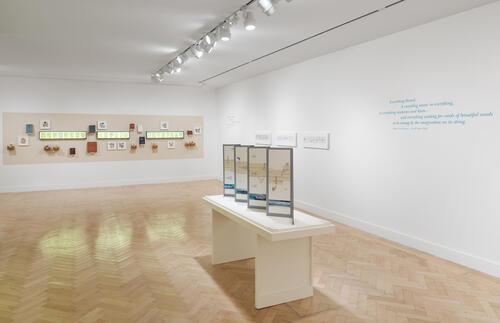
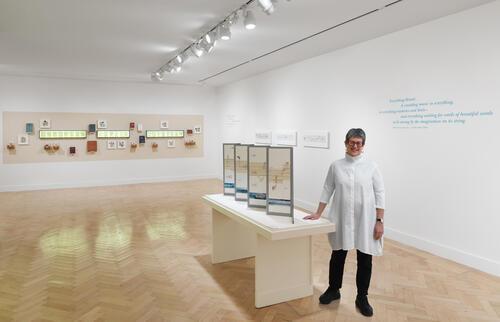
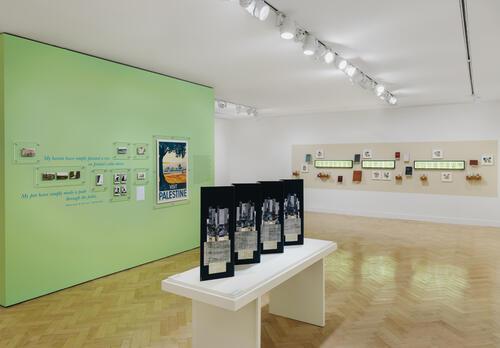
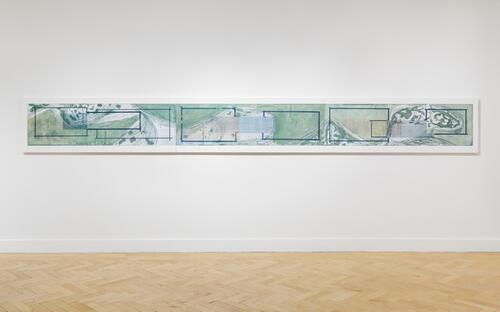
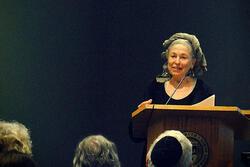




Superb writing complementing astounding art! Looking for a way to expand conversation about Isral., the power of the visual and the literary? Take a moment to enjoy.